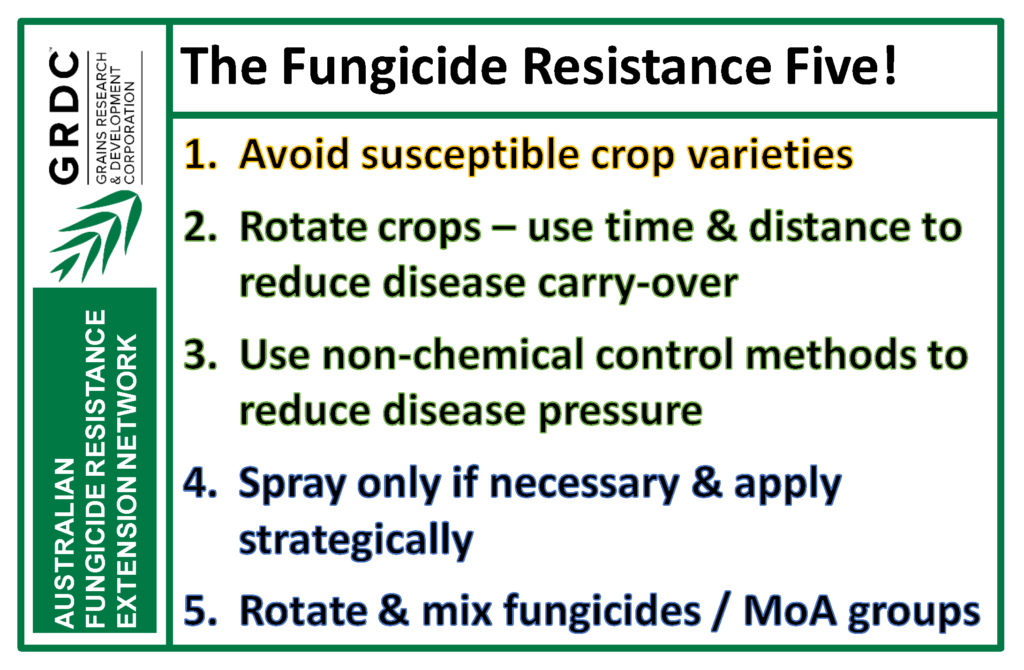Most of us would agree with the advertising Meerkat when he advocates making life “simples”. Simple is good. Simple is usually better.
But, sometimes it’s good to be complicated, especially when it comes to preventing and managing fungicide resistance. How so? Basically, the more dynamic your cropping situation is, the harder it is for fungi to adapt and for resistant individuals to be selected following fungicide use
If we can keep things complicated, by rotating crops and crop varieties, managing stubble by grazing, and changing the fungicide chemistries we use regularly, we keep challenging the fungus to keep up. This encourages the fungus to keep all sorts of individuals in its population, instead of focusing all of its efforts on overcoming the fungicides we use.
Everything in life comes at a cost. When fungi develop resistance to fungicides they are more than likely trading off some other selective advantage – for growth, for reproduction or perhaps for tolerating other stressors such as heat or overcoming host resistance.
Plus, when we keep fungal disease pressure low using all the non-chemical tools available to us, there’s less need to use fungicides in the first place – saving growers money and time, protecting the environment and hitting sustainability targets which can have marketing benefits, all while reducing the chances of fungicide resistance developing on the farm.

Keeping things complicated can also help with weed control, as studies from the Australian Herbicide Resistance Initiative (AHRI) have recently shown. Weeds not only adapt to herbicides, by developing herbicide resistance, but there’s evidence they also adapt to the other non-chemical control methods growers apply. By growing differently or setting seed at different times in response to repeated management measures, weeds seek to out-compete agronomic controls.
If you keep doing the same thing over and over, weeds and/or fungi which can overcome that stress will keep getting selected.
So, consider changing your relationship status with fungicide resistance to “It’s complicated”.
Try applying the AFREN Fungicide Resistance Five on your farm – because keeping it complicated can deliver benefits far beyond fungicide resistance management and prevention.

